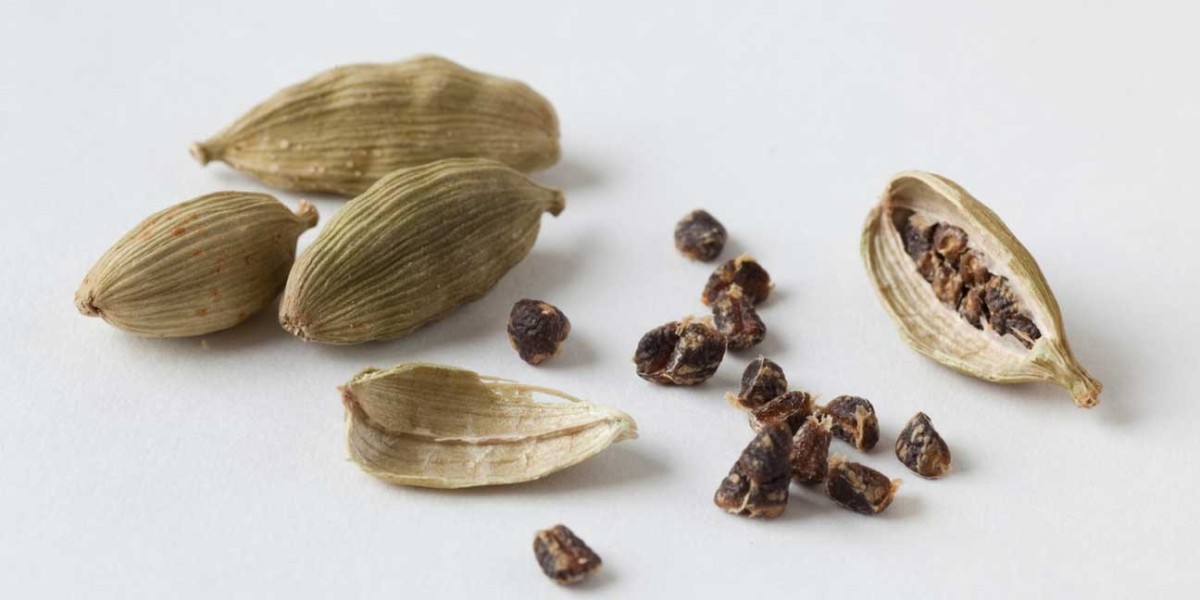Cardamom, also known as elaichi, is a popular spice that is widely used in culinary and medicinal applications. With its unique aroma and flavor, cardamom adds depth to various dishes and beverages. However, its benefits extend beyond its culinary uses. In this article, we will explore the amazing health benefits of cardamom and how it can contribute to your overall well-being.
Introduction
Cardamom, scientifically known as Elettaria cardamomum, is a tropical plant native to India and other parts of Asia. It belongs to the ginger family and has been used for centuries in Ayurvedic and traditional medicine systems. Apart from its distinct flavor and aroma, cardamom offers a range of health benefits due to its rich nutritional composition.
Nutritional Profile of Cardamom
Cardamom contains various essential nutrients, including carbohydrates, dietary fiber, protein, and traces of vitamins and minerals such as vitamin C, calcium, and magnesium. It is also a good source of antioxidants, which play a vital role in combating free radicals and reducing oxidative stress in the body.
Digestive Health Benefits
One of the significant benefits of cardamom is its positive impact on digestion. It helps stimulate the production of digestive enzymes, which aids in the breakdown of food and enhances nutrient absorption. Cardamom is often used as a natural remedy for digestive issues like indigestion, bloating, and stomach cramps.
Anti-inflammatory Properties
Cardamom possesses potent anti-inflammatory properties. It contains compounds such as cineole, terpinene, and limonene, which exhibit anti-inflammatory effects. Regular consumption of cardamom may help reduce inflammation in the body, alleviating symptoms of inflammatory conditions like arthritis and inflammatory bowel disease.
Oral Health Benefits
The antimicrobial properties of cardamom make it beneficial for oral health. It can help combat bad breath, prevent dental cavities, and reduce the growth of harmful bacteria in the mouth. Chewing on cardamom pods or using cardamom-infused mouthwashes can contribute to improved oral hygiene.
Respiratory Health Benefits
Cardamom has traditionally been used to alleviate respiratory ailments such as coughs, congestion, and asthma. Its expectorant properties help loosen phlegm and mucus, making it easier to breathe. Incorporating cardamom into your diet or consuming cardamom tea can provide respiratory relief.
Heart Health Benefits
Several studies suggest that cardamom may have cardiovascular benefits. It may help lower blood pressure levels, reduce cholesterol levels, and improve overall heart health. The antioxidant and anti-inflammatory properties of cardamom play a crucial role in maintaining a healthy cardiovascular system.
Weight Management Benefits
Cardamom may aid in weight management due to its thermogenic properties. It helps boost metabolism and increase fat burning, which can contribute to weight loss. Additionally, cardamom's natural sweetness can be a healthier alternative to refined sugar, promoting better control over calorie intake.
Antioxidant Properties
As mentioned earlier, cardamom is rich in antioxidants. These compounds help protect the body against oxidative stress, which can lead to various chronic diseases and premature aging. Regular consumption of cardamom may help neutralize free radicals and reduce the risk of conditions like cancer, diabetes, and heart disease.
Detoxification Benefits
The diuretic properties of cardamom aid in detoxification by promoting increased urine production. This process helps flush out toxins and waste materials from the body, promoting kidney health and preventing the formation of kidney stones. Including cardamom in your diet can support natural detoxification processes.
Skin Health Benefits
Cardamom offers several benefits for the skin. Its antioxidant properties help fight signs of aging, such as wrinkles and fine lines. The antibacterial properties of cardamom may also help in managing acne and other skin infections. Applying cardamom oil or using cardamom-infused skincare products can contribute to healthier-looking skin.
Diabetes Management
Research suggests that cardamom may have a positive impact on managing diabetes. It may help regulate blood sugar levels and improve insulin sensitivity. However, it is essential to consult with a healthcare professional before incorporating cardamom into a diabetes management plan.
Stress Relief and Mental Well-being
Cardamom's aroma has a soothing and calming effect on the mind. It can help reduce stress, anxiety, and symptoms of depression. The essential oils present in cardamom possess mood-enhancing properties that promote mental well-being and relaxation.
Boosting Immunity
Cardamom contains essential vitamins and antioxidants that can help strengthen the immune system. Regular consumption of cardamom may enhance the body's defense mechanisms, reducing the risk of infections and supporting overall immune health.
Conclusion
Cardamom, with its unique flavor and numerous health benefits, is a valuable addition to any diet. From aiding digestion to promoting heart health and boosting immunity, the advantages of incorporating cardamom into your daily routine are remarkable. However, it is important to remember that cardamom should be consumed in moderation, and individual responses may vary. Enjoy the delightful taste and harness the potential health benefits of this remarkable spice.








